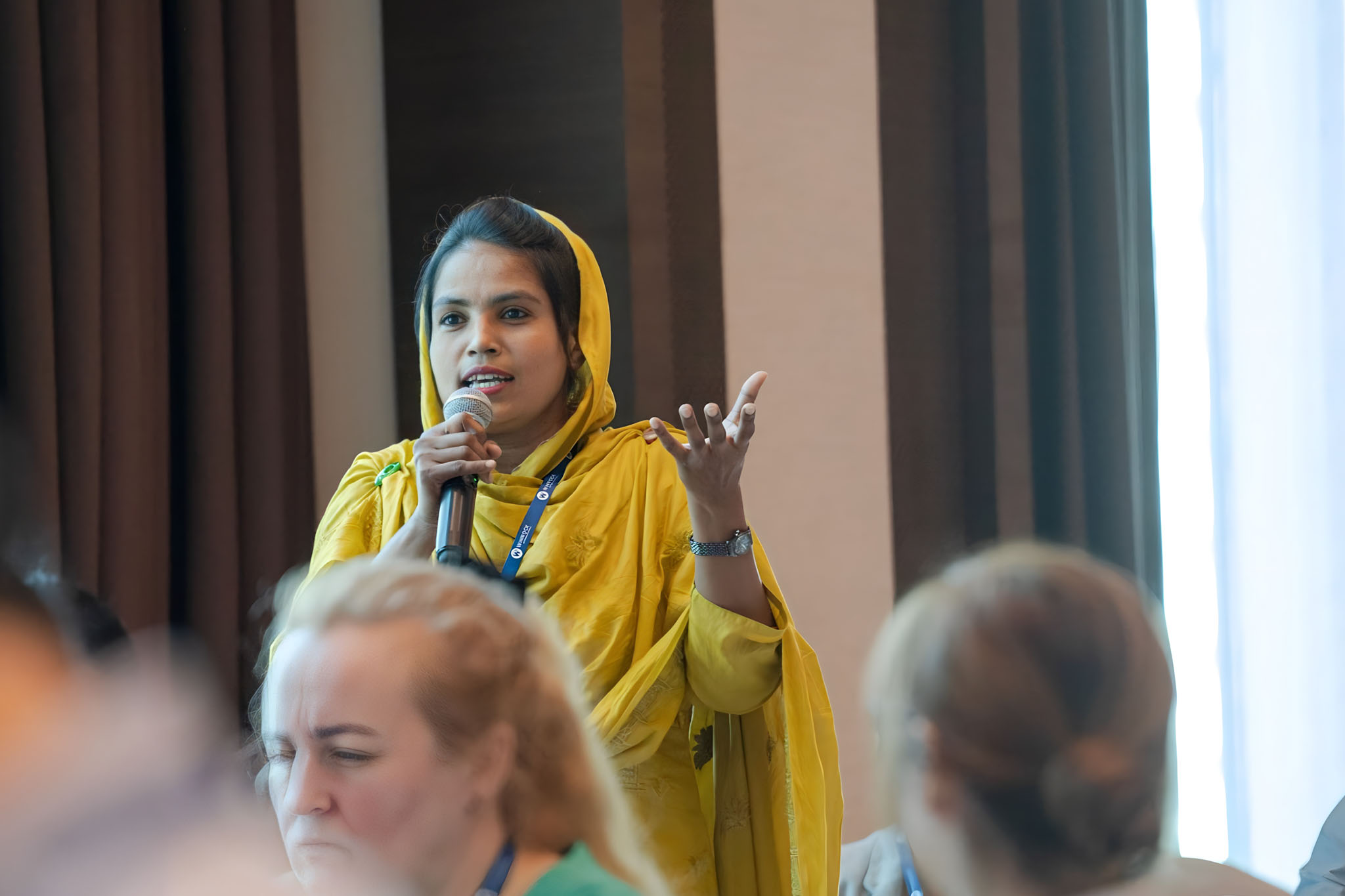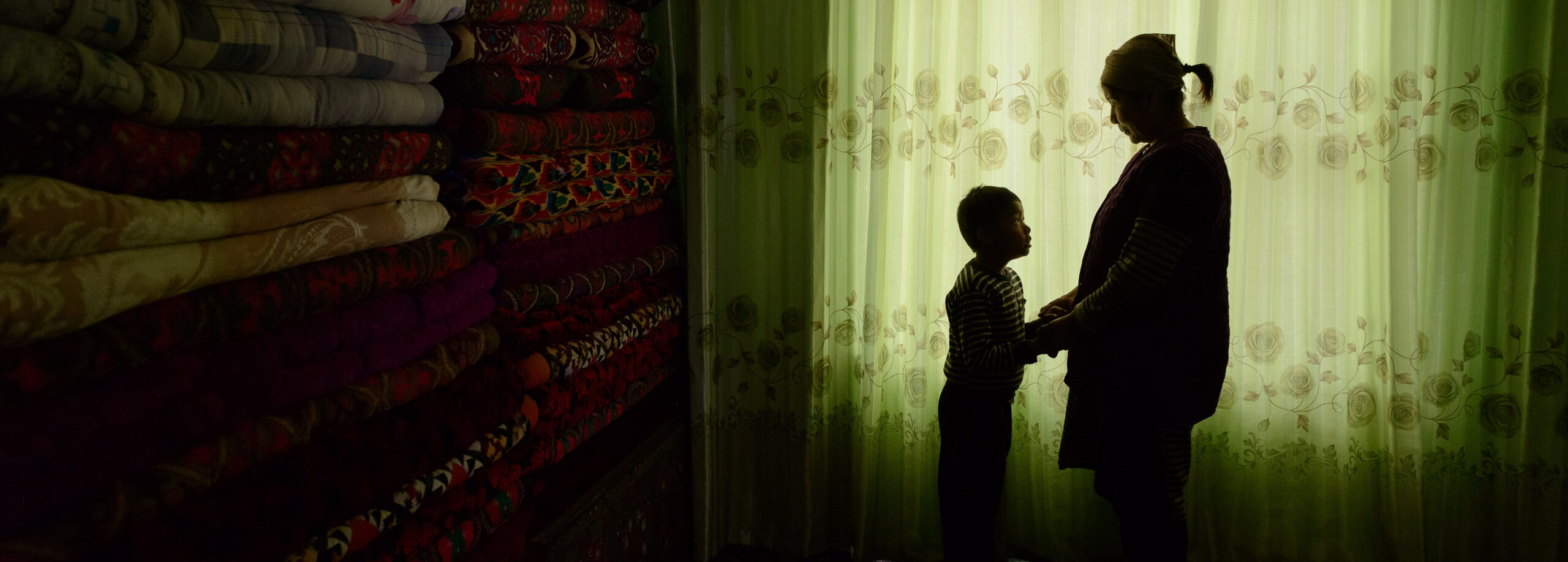
USAID Asia CTIP: Evidence2Action conference collaborates on survivor-centered approaches
By the USAID Asia Counter Trafficking in Persons (CTIP) project team at Winrock International.
Have you ever wondered how survivor narratives are able to not just inspire, but actively reshape the landscape of counter-trafficking interventions?
This increasingly salient theme was at the core of a series of workshops, dialogues and conversations at the 2023 Evidence2Action (E2A) Conference held Nov. 28-30, 2023, in Bangkok. Hosted by the USAID Asia Counter Trafficking in Persons (CTIP) project and supported by Winrock International, this annual conference marked a significant shift in the way in-person conferences are typically held, bringing together a diverse network of stakeholders in conversation through participatory workshops. Participants included survivors, migrant workers, grassroots Civil Society Organizations, International Non-Governmental Organizations and researchers working on trafficking-in-persons related issues from across the Asia region. With over 140 participants hailing from 22 countries, this gathering proved to be a pivotal moment in the collective effort against trafficking.
Day 1 – Survivor-centered approaches: Stories of resilience and self-reflection
“My will is my power and if our willpower is strong, we can believe in the brightest part of the day.” — Al-Amin Noyon, Bangladesh Rural Advancement Committee, on 2023 E2A Summit’s panel on “Paradigm Shift: Survivor-led Approaches to CTIP.”
Throughout the first day, survivor voices shared stories of triumph, resilience and the challenging path toward reclaiming control from exploitation. These narratives highlighted the unwavering spirit of those affected by human trafficking crimes, emphasizing the crucial role survivor engagement plays in shaping effective anti-trafficking interventions.
In one of the sessions, “Paradigm Shift: Survivor-led Approaches to CTIP” MD Abdus Salam, Survivor Empowerment Officer at the Humanity Research Consultancy, emphasized that “Survivor engagement is easy to talk about but difficult to implement.” If a paradigm shift towards survivor leadership is what we want in the anti-trafficking sector, we should understand that healing is specific to each individual. Caring and big changes start with little steps.
The session titled “Bridges to Healing: Innovations in Trauma Recovery” centered on unique methods for facilitating healing and advocating for comprehensive recovery for survivors. It showcased the transformative yet less-documented impact of art, neuro-sensory and sport-based interventions on trauma recovery, implemented by CSOs from the Central Asia subregion and India. In order to build out the evidence base on the effectiveness of these non-traditional therapeutic approaches in addressing the complex needs of trafficking survivors and reducing their trauma symptoms, a pitch challenge was launched. E2A participants with research backgrounds and expertise were encouraged to partner with the aforementioned CSOs to send in applications for this small research grant.
As the day progressed, participants took part in reflective exercises, exploring their own biases and perspectives when working with vulnerable populations. By openly addressing biases, practitioners build trust, uphold ethical standards and encourage collaboration, resulting in more empathetic and impactful efforts to combat human trafficking.
The end of day one was marked by an exploration of “Battling Cyberslavery: Regional and Global Cooperation.” The session emphasized critical areas for intervention that directly connect to the overall survivor-centered theme of E2A, including prevention, following the money, calling for international cooperation, effective law enforcement and heightened awareness to combat this pervasive form of modern slavery.
Day 2 – Regional Focus: Tackling interconnected challenges
On day two, discussions focused on the multitude of challenges inherent in counter-trafficking efforts. The intersectionality of climate change, migration and human trafficking took center stage. Panelists illuminated how climate change, compounded by governance gaps, amplifies the risks of modern slavery.
“We must integrate climate resilience measures into our responses,” emphasized speakers during a session on “Integrating Climate Change Response to CTIP Programming.” Zakia Naznin, from the B-PEMS AugroJatra Climate Change project implemented by Winrock, underscored the importance of livelihood diversification and early warning systems as integral components of this integration. Additionally, climate resilience measures should be an integral part of effective TIP prevention programming as well as survivor reintegration.
Another session titled “Unlocking the Migrant Potential: Redefining Migration as Fundamental Rights” shed much light on the struggles and injustices faced by migrant workers in various sectors across Asia and the Middle East. Advocating for equitable opportunities and dignity, Bhim Shrestha, former migrant worker and executive director of Shramik Sanjal, passionately stated: “We need more equal opportunities and dignity for migrant workers.”
The day culminated with an animated movie screening of “Caring for Survivors,” a series of videos developed by USAID’s Fight Slavery and Trafficking in Persons Activity implemented by Winrock in Bangladesh. The series explains the “do’s and don’ts” of providing care for human trafficking survivors, placing a particular emphasis on “Do No Harm” principles and preventing revictimization.
Day 3 – Actionable Outcomes: Bridging stories to actionable plans
The final day of E2A saw participants take part in an immersive workshop on the transformative power of storytelling in combating human trafficking. They explored the ethical and impactful ways stories could inspire change while safeguarding the agency and dignity of survivors. The stories we tell either through words or images, have the power to make a change, steer a conversation and bring issues to the forefront of discussions.
The stories we tell are deeply personal and genuine. It’s crucial to present them ethically — a point that was strongly felt throughout our discussions. Participants acknowledged the significant role survivor agency plays and stressed the need for strict guidelines to protect their well-being and ensure ethical representation. One key takeaway that deeply resonated was the recognition that survivors have the power to decide if and how they share their stories.
Day three further delved into the challenges faced by domestic workers, including in pursuing further education, shedding light on their plight and advocating for equitable rights and recognition. The screening of “A Beacon of Inspiration” served as a reminder of the critical need for comprehensive support during survivors’ reintegration into society. This movie, produced by the Switzerland-supported Ashshash project implemented by Winrock highlights the triumphant tales of human trafficking survivors from Bangladesh’s high-risk regions. This project’s unique survivor-centered and gender-sensitive approach has empowered survivors, turning them into leaders and advocates.

“In sameness, we connect; in differences, we, grow” — Uma Chatterjee, Sanjog, 2023 E2A Summit panelist on “Bridges to Healing: Innovations in Trauma Recovery” (Pitch Challenge) .
Lessons and commitments
“Deep community building is the core of transformational shifts,” emphasized Uma Chatterjee, from Sanjog, encapsulating the resonance of collaboration and shared efforts in combating human exploitation and trafficking.
The conference emphasized the necessity of shifting the counter-trafficking paradigm towards survivor-centered and survivor-led approaches. These approaches should not only focus on prevention and protection but also expand to include key but often forgotten elements such as recovery and healing, through holistic, innovative, and trauma-informed methods. Placing survivors’ experiences at the core is crucial, and interconnectedness should be the foundation of initiatives combating human trafficking. Overall, the E2A 2023 in-person conference illuminated challenges, inspired hope, and energized stakeholders to pursue a world free from exploitation and trafficking.
Disclaimer: This blog was made possible through the generous support of the American people through the United States Agency for International Development (USAID). The contents do not necessarily reflect the views of USAID or the United States Government.
Related Projects

